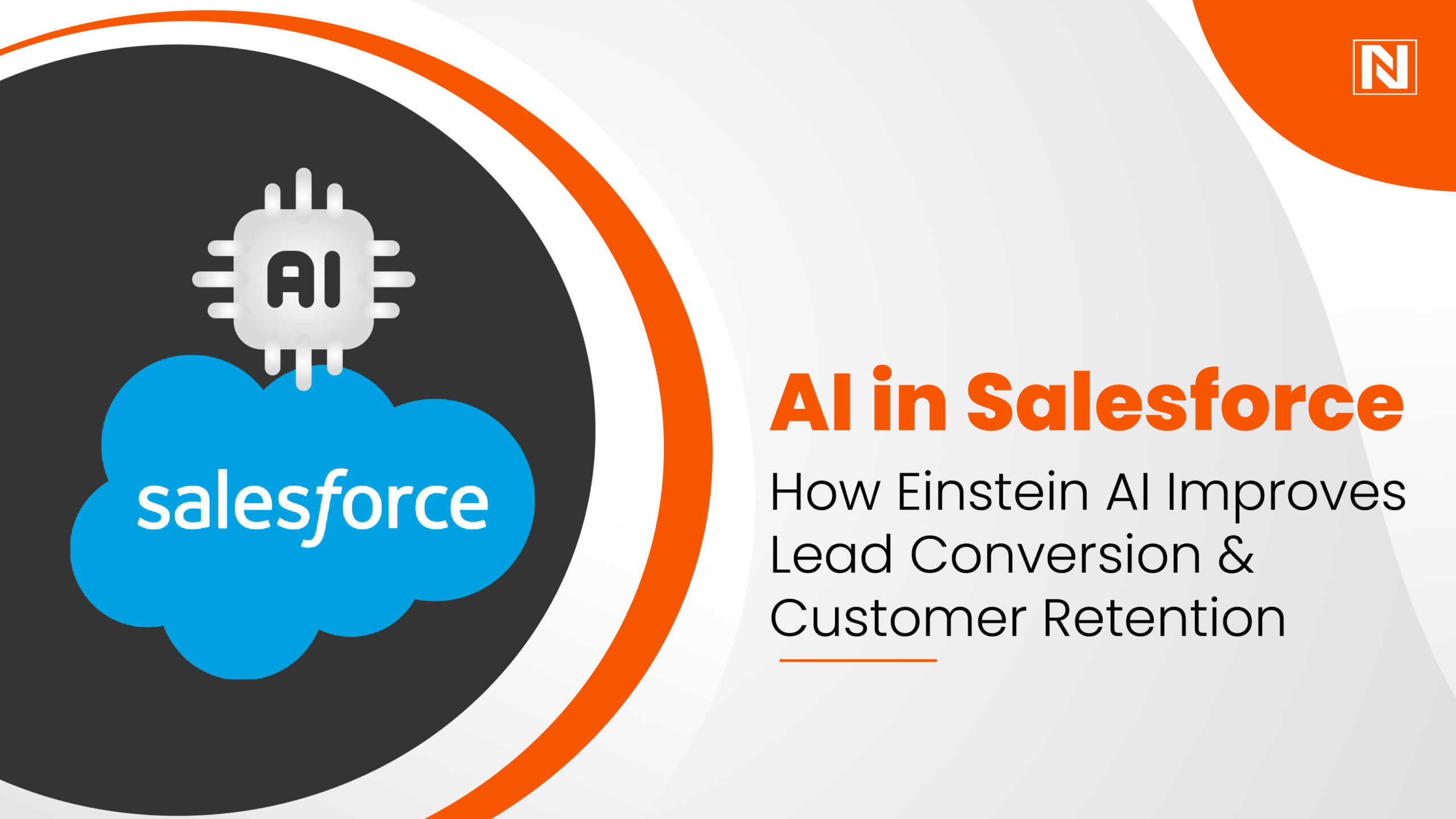
What if your CRM could predict your next big deal or spot a fading customer before they walk away? Salesforce Einstein AI is your sales team’s sharpest ally, analyzing patterns humans miss and automating decisions at lightning speed. But how exactly does it turn raw data into revenue? Buckle up as we’re breaking down the real magic behind AI in Salesforce and why your competitors are already using it.
In this thought leadership piece, we’ll explore:
1. How Salesforce Einstein AI solutions enhance lead scoring and conversion.
2. The role of predictive analytics in customer retention.
3. Real-world applications and benefits of AI-driven CRM strategies.
The Role of AI in Modern CRM
Customer Relationship Management (CRM) systems have evolved from simple contact management tools to intelligent platforms that predict customer behavior, automate workflows, and personalize interactions. Salesforce Artificial Intelligence, powered by Einstein, integrates machine learning, natural language processing (NLP), and predictive analytics to deliver smarter business outcomes.
Key Benefits of AI in Salesforce:
- Predictive Lead Scoring – Identifies high-value leads for prioritization.
- Automated Customer Insights – Analyzes customer data to recommend next best actions.
- Personalized Engagement – Delivers tailored content and recommendations.
- Churn Prediction – Flags at-risk customers for proactive retention efforts.
How Einstein AI Enhances Lead Conversion
Einstein AI, Salesforce’s artificial intelligence platform, revolutionizes lead conversion in several impactful ways:

1. Intelligent Lead Scoring
Traditional lead scoring relies on manual rules, but Einstein AI dynamically evaluates leads based on historical data, engagement patterns, and firmographics. By assigning an “Einstein Score,” sales teams can focus on prospects most likely to convert.
Example: A B2B company using Salesforce AI saw a 28% increase in lead conversion by prioritizing leads flagged by Einstein’s predictive scoring.
2. Automated Follow-Ups & Recommendations
Einstein AI analyzes past interactions to suggest optimal follow-up times, messaging, and channels. This ensures that sales reps engage leads with the right approach at the right moment.
3. Next Best Action Guidance
Instead of guessing the next step, sales teams receive AI-driven recommendations whether it’s sending a proposal, scheduling a demo, or offering a discount.
| Metric | Before Einstein AI | After Einstein AI | Improvement |
| Lead Response Time | 48 hours | 4 hours | 88% Faster |
| Conversion Rate | 12% | 18% | 50% Higher |
| Sales Cycle Length | 45 days | 32 days | 29% Shorter |
Boosting Customer Retention with Salesforce AI
Acquiring a new customer can cost 5x more than retaining an existing one. Einstein AI helps businesses reduce churn and strengthen loyalty through:

1. Predictive Churn Analysis
By analyzing customer behavior (e.g., reduced usage, support ticket spikes), Einstein predicts which accounts are at risk. Companies can then intervene with retention strategies like personalized offers or dedicated support.
2. AI-Powered Customer Service
Einstein Bot and Case Routing automate routine inquiries while escalating complex issues to human agents. This reduces resolution time and improves satisfaction.
3. Hyper-Personalized Marketing
Using Salesforce Artificial Intelligence, marketers can segment audiences with precision and deliver content tailored to individual preferences, increasing engagement and repeat purchases.
DID YOU KNOW?
Sales teams using AI reported a 83% revenue growth in 2024, compared to just 66% among those not using AI.
Implementing Salesforce Einstein AI: Best Practices
For businesses ready to adopt Salesforce Einstein AI solutions, follow these steps:
1. Define Clear Objectives – Identify KPIs (e.g., conversion rates, retention metrics).
2. Ensure Data Quality – AI models rely on clean, structured data.
3. Train Teams on AI Insights – Equip sales and service teams to act on AI recommendations.
4. Iterate & Optimize – Continuously refine AI models based on performance data.
The Future of AI in Salesforce
Salesforce continues to innovate with Einstein AI, integrating advanced capabilities like:
- Conversational AI – Smarter chatbots for seamless customer service.
- Generative AI – Automated content creation for emails, reports, and knowledge articles.
- Industry-Specific AI Models – Tailored solutions for healthcare, finance, and retail.
Conclusion
AI in Salesforce, powered by Einstein AI, is a necessity for businesses aiming to maximize lead conversion and customer retention. By leveraging predictive analytics, automation, and hyper-personalization, companies can stay ahead in an increasingly competitive orbit.
For decision-makers, the question isn’t whether to adopt Salesforce Artificial Intelligence, but how quickly they can implement it to unlock transformative growth.
Ready to explore Einstein AI for your business? Contact our Salesforce experts today to schedule a consultation.
Frequently Asked Questions
What is Salesforce Einstein AI?
Einstein AI is Salesforce’s artificial intelligence platform that uses machine learning, predictive analytics, and automation to enhance lead conversion, customer retention, and personalized engagement.
How does Einstein AI improve lead conversion?
t uses predictive lead scoring, automated follow-up recommendations, and next-best-action insights to prioritize high-value leads and optimize sales efforts, boosting conversion rates.
Can Einstein AI help reduce customer churn?
Yes, it analyzes customer behavior (like decreased usage or support interactions) to predict churn risks, allowing businesses to proactively engage at-risk customers with retention strategies.
What are the key benefits of AI in Salesforce?
- Smarter lead prioritization
- Faster sales cycles
- Hyper-personalized customer engagement
- Automated insights for better decision-making
How can businesses implement Einstein AI effectively?
- Define clear goals (e.g., higher conversions, lower churn).
- Ensure clean, structured data for accurate AI predictions.
- Train teams to act on AI-driven insights.
- Continuously refine AI models based on performance.
